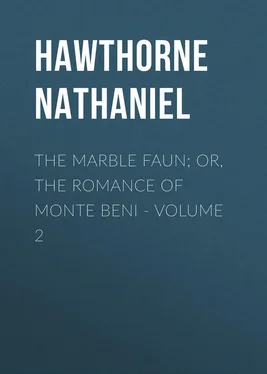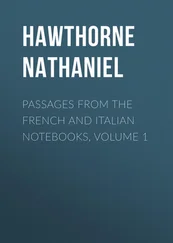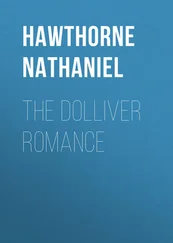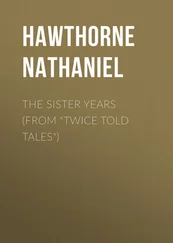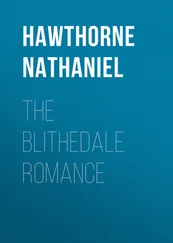Nathaniel Hawthorne - The Marble Faun; Or, The Romance of Monte Beni - Volume 2
Здесь есть возможность читать онлайн «Nathaniel Hawthorne - The Marble Faun; Or, The Romance of Monte Beni - Volume 2» — ознакомительный отрывок электронной книги совершенно бесплатно, а после прочтения отрывка купить полную версию. В некоторых случаях можно слушать аудио, скачать через торрент в формате fb2 и присутствует краткое содержание. Жанр: literature_19, foreign_antique, foreign_prose, на английском языке. Описание произведения, (предисловие) а так же отзывы посетителей доступны на портале библиотеки ЛибКат.
- Название:The Marble Faun; Or, The Romance of Monte Beni - Volume 2
- Автор:
- Жанр:
- Год:неизвестен
- ISBN:нет данных
- Рейтинг книги:3 / 5. Голосов: 1
-
Избранное:Добавить в избранное
- Отзывы:
-
Ваша оценка:
- 60
- 1
- 2
- 3
- 4
- 5
The Marble Faun; Or, The Romance of Monte Beni - Volume 2: краткое содержание, описание и аннотация
Предлагаем к чтению аннотацию, описание, краткое содержание или предисловие (зависит от того, что написал сам автор книги «The Marble Faun; Or, The Romance of Monte Beni - Volume 2»). Если вы не нашли необходимую информацию о книге — напишите в комментариях, мы постараемся отыскать её.
The Marble Faun; Or, The Romance of Monte Beni - Volume 2 — читать онлайн ознакомительный отрывок
Ниже представлен текст книги, разбитый по страницам. Система сохранения места последней прочитанной страницы, позволяет с удобством читать онлайн бесплатно книгу «The Marble Faun; Or, The Romance of Monte Beni - Volume 2», без необходимости каждый раз заново искать на чём Вы остановились. Поставьте закладку, и сможете в любой момент перейти на страницу, на которой закончили чтение.
Интервал:
Закладка:
She taught him how to call her from her pebbly source, and they spent many a happy hour together, more especially in the fervor of the summer days. For often as he sat waiting for her by the margin of the spring, she would suddenly fall down around him in a shower of sunny raindrops, with a rainbow glancing through them, and forthwith gather herself up into the likeness of a beautiful girl, laughing — or was it the warble of the rill over the pebbles? — to see the youth’s amazement.
Thus, kind maiden that she was, the hot atmosphere became deliciously cool and fragrant for this favored knight; and, furthermore, when he knelt down to drink out of the spring, nothing was more common than for a pair of rosy lips to come up out of its little depths, and touch his mouth with the thrill of a sweet, cool, dewy kiss!
“It is a delightful story for the hot noon of your Tuscan summer,” observed the sculptor, at this point. “But the deportment of the watery lady must have had a most chilling influence in midwinter. Her lover would find it, very literally, a cold reception!”
“I suppose,” said Donatello rather sulkily, “you are making fun of the story. But I see nothing laughable in the thing itself, nor in what you say about it.”
He went on to relate, that for a long While the knight found infinite pleasure and comfort in the friendship of the fountain nymph. In his merriest hours, she gladdened him with her sportive humor. If ever he was annoyed with earthly trouble, she laid her moist hand upon his brow, and charmed the fret and fever quite away.
But one day — one fatal noontide — the young knight came rushing with hasty and irregular steps to the accustomed fountain. He called the nymph; but — no doubt because there was something unusual and frightful in his tone she did not appear, nor answer him. He flung himself down, and washed his hands and bathed his feverish brow in the cool, pure water. And then there was a sound of woe; it might have been a woman’s voice; it might have been only the sighing of the brook over the pebbles. The water shrank away from the youth’s hands, and left his brow as dry and feverish as before.
Donatello here came to a dead pause.
“Why did the water shrink from this unhappy knight?” inquired the sculptor.
“Because he had tried to wash off a bloodstain!” said the young Count, in a horror-stricken whisper. “The guilty man had polluted the pure water. The nymph might have comforted him in sorrow, but could not cleanse his conscience of a crime.”
“And did he never behold her more?” asked Kenyon.
“Never but once,” replied his friend. “He never beheld her blessed face but once again, and then there was a blood-stain on the poor nymph’s brow; it was the stain his guilt had left in the fountain where he tried to wash it off. He mourned for her his whole life long, and employed the best sculptor of the time to carve this statue of the nymph from his description of her aspect. But, though my ancestor would fain have had the image wear her happiest look, the artist, unlike yourself, was so impressed with the mournfulness of the story, that, in spite of his best efforts, he made her forlorn, and forever weeping, as you see!”
Kenyon found a certain charm in this simple legend. Whether so intended or not, he understood it as an apologue, typifying the soothing and genial effects of an habitual intercourse with nature in all ordinary cares and griefs; while, on the other hand, her mild influences fall short in their effect upon the ruder passions, and are altogether powerless in the dread fever-fit or deadly chill of guilt.
“Do you say,” he asked, “that the nymph’s race has never since been shown to any mortal? Methinks you, by your native qualities, are as well entitled to her favor as ever your progenitor could have been. Why have you not summoned her?”
“I called her often when I was a silly child,” answered Donatello; and he added, in an inward voice, “Thank Heaven, she did not come!”
“Then you never saw her?” said the sculptor.
“Never in my life!” rejoined the Count. “No, my dear friend, I have not seen the nymph; although here, by her fountain, I used to make many strange acquaintances; for, from my earliest childhood, I was familiar with whatever creatures haunt the woods. You would have laughed to see the friends I had among them; yes, among the wild, nimble things, that reckon man their deadliest enemy! How it was first taught me, I cannot tell; but there was a charm — a voice, a murmur, a kind of chant — by which I called the woodland inhabitants, the furry people, and the feathered people, in a language that they seemed to understand.”
“I have heard of such a gift,” responded the sculptor gravely, “but never before met with a person endowed with it. Pray try the charm; and lest I should frighten your friends away, I will withdraw into this thicket, and merely peep at them.”
“I doubt,” said Donatello, “whether they will remember my voice now. It changes, you know, as the boy grows towards manhood.”
Nevertheless, as the young Count’s good-nature and easy persuadability were among his best characteristics, he set about complying with Kenyon’s request. The latter, in his concealment among the shrubberies, heard him send forth a sort of modulated breath, wild, rude, yet harmonious. It struck the auditor as at once the strangest and the most natural utterance that had ever reached his ears. Any idle boy, it should seem, singing to himself and setting his wordless song to no other or more definite tune than the play of his own pulses, might produce a sound almost identical with this; and yet, it was as individual as a murmur of the breeze. Donatello tried it, over and over again, with many breaks, at first, and pauses of uncertainty; then with more confidence, and a fuller swell, like a wayfarer groping out of obscurity into the light, and moving with freer footsteps as it brightens around him.
Anon, his voice appeared to fill the air, yet not with an obtrusive clangor. The sound was of a murmurous character, soft, attractive, persuasive, friendly. The sculptor fancied that such might have been the original voice and utterance of the natural man, before the sophistication of the human intellect formed what we now call language. In this broad dialect — broad as the sympathies of nature — the human brother might have spoken to his inarticulate brotherhood that prowl the woods, or soar upon the wing, and have been intelligible to such extent as to win their confidence.
The sound had its pathos too. At some of its simple cadences, the tears came quietly into Kenyon’s eyes. They welled up slowly from his heart, which was thrilling with an emotion more delightful than he had often felt before, but which he forbore to analyze, lest, if he seized it, it should at once perish in his grasp.
Donatello paused two or three times, and seemed to listen, — then, recommencing, he poured his spirit and life more earnestly into the strain. And finally, — or else the sculptor’s hope and imagination deceived him, — soft treads were audible upon the fallen leaves. There was a rustling among the shrubbery; a whir of wings, moreover, that hovered in the air. It may have been all an illusion; but Kenyon fancied that he could distinguish the stealthy, cat-like movement of some small forest citizen, and that he could even see its doubtful shadow, if not really its substance. But, all at once, whatever might be the reason, there ensued a hurried rush and scamper of little feet; and then the sculptor heard a wild, sorrowful cry, and through the crevices of the thicket beheld Donatello fling himself on the ground.
Emerging from his hiding-place, he saw no living thing, save a brown lizard (it was of the tarantula species) rustling away through the sunshine. To all present appearance, this venomous reptile was the only creature that had responded to the young Count’s efforts to renew his intercourse with the lower orders of nature.
Читать дальшеИнтервал:
Закладка:
Похожие книги на «The Marble Faun; Or, The Romance of Monte Beni - Volume 2»
Представляем Вашему вниманию похожие книги на «The Marble Faun; Or, The Romance of Monte Beni - Volume 2» списком для выбора. Мы отобрали схожую по названию и смыслу литературу в надежде предоставить читателям больше вариантов отыскать новые, интересные, ещё непрочитанные произведения.
Обсуждение, отзывы о книге «The Marble Faun; Or, The Romance of Monte Beni - Volume 2» и просто собственные мнения читателей. Оставьте ваши комментарии, напишите, что Вы думаете о произведении, его смысле или главных героях. Укажите что конкретно понравилось, а что нет, и почему Вы так считаете.
